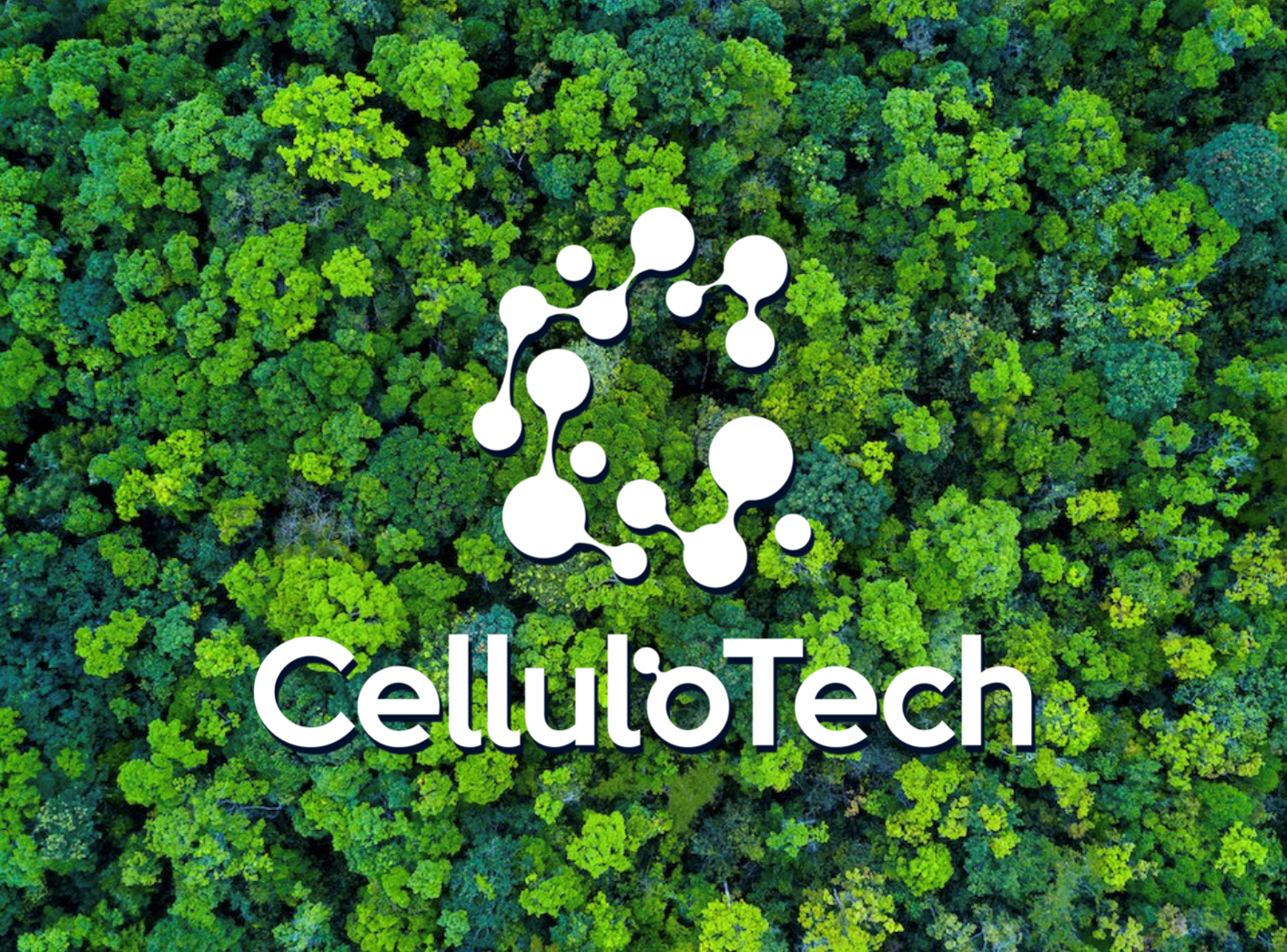
Cellulotech believes in cellulose as the key material of the 21st century
Members NewsIn our series of ExpandFibre member introductions, meet Cellulotech. The Canadian material science R&D company, with focus on cellulose and chromatogeny, has developed a completely new and more efficient chemical engineering approach to help several industries achieve their economic and sustainability goals.
We talked to Romain Metivet, the Founder and CEO of Cellulotech, who started off by explaining chromatogeny, a green chemistry process discovered by its Chief Scientist, Daniel Samain. Chromatogeny is a scalable and low-cost molecular grafting process that can offer strong barriers to water, grease, vapour and oxygen to cellulose-based materials. Simultaneously, it preserves all their recyclability, compostability and biodegradability properties. While chromatogeny was discovered more than 20 years ago, Cellulotech believes a suboptimal process limited its adoption. The company has solved this issue with a completely new and more efficient chemical engineering approach. Their main goal is to develop their patent portfolio and work with several industries to help them achieve their economic and sustainability goals.
Expanding the use of cellulose to build a sustainable economy
Cellulose is the most abundant organic compound on earth. Therefore, it makes plenty of sense to expand its use as much as possible to build a sustainable economy. To do so, we need to focus on robust technologies that enhance its properties, avoid overengineering and keep costs low. Chromatogeny has a lot to offer on this front. Romain Metivet says: “I believe Cellulotech's process could not only help the global paper and packaging industry to get rid of PE linings or coatings, PFAS, waxes, sizing agents, etc., but become a new standard for all cellulose-based materials.”
Sharing the vision with the ExpandFibre ecosystem
The ExpandFibre ecosystem and Cellulotech share a vision which is to unleash the potential of fibres and wood products (in our specific case, cellulose). Romain Metivet says: “When I reached out to know more, I was very impressed by the team I talked to and immediately felt that ExpandFibre was a very active ecosystem. I firmly believe chromatogeny is a game-changer, but we are a small company and cannot do everything on our own.”
Working with like-minded organizations is crucial to transform Cellulotech’s innovation into a new industrial reality and make it reach its full potential. Moreover, the variety of actors and industries represented allows the company to work on new applications beyond paper and packaging. For example, Cellulotech is now working on projects regarding plywood or textiles.
Bringing in deep understanding of the possibilities of cellulose and chemistry behind it
Romain Metivet thinks that Cellulotech’s process and their deep understanding of the chemistry behind it offer many possibilities to the members of the ecosystem, whether they try to get rid of plastics, chemicals or even develop completely new products that were not thought possible before.
For example, as chromatogeny can be used to provide a liquid barrier without affecting breathability, the company have demonstrated that a 100% paper-based material could replace the polypropylene currently used for the manufacturing of face masks while complying with medical standards and being cheaper to produce. This is an entirely new application for cellulose, and Romain Metivet is sure there are many others they have not thought about yet that members of the ecosystem will come up with.
Cellulotech is looking to build long-lasting industrial and research partnerships to fuel creativity, and to develop and produce bioproducts that will answer our economic and sustainability challenges.
More information: CelluloTech website